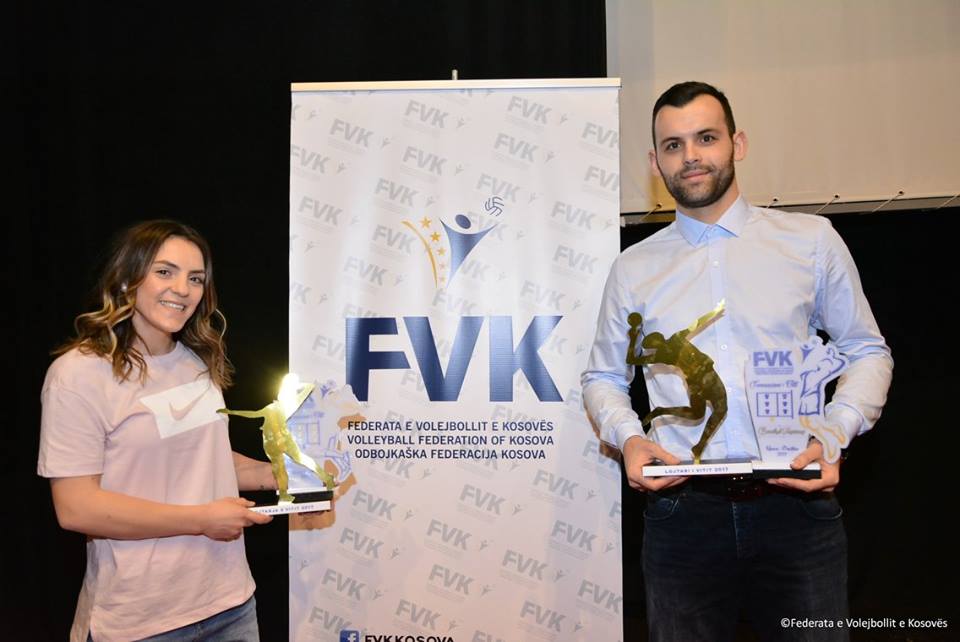A country’s independence movement sometimes finds more international support in sports’ federations than in intergovernamental organizations. Such was the case in Kosovo’s fight for international recognition. Kosovo was a part of several international sports federations in the 1990s, and has applied to become a member of many more after its 2008 declaration of independence from Serbia. It is currently a full member of 25 international federations, a provisional member of four, and an associated member of one.
Recently, it took another step in its fight for sporting legitimacy, as Bardhyl Hajdaraj, of KV Peja, and Adelajda Prenga, of KV Drita, have been named Kosovo’s best Volleyball players in 2017, having received the highest number of votes among those cast by coaches nationwide and topping the stats from matches played in domestic competitions, in the European Cups and with the national team. KV Luboteni and KV Drita, and their respective trainers, Arsim Lohaj and Lorik Ilazi, swept the awards for the best men’s and women’s teams and for best men’s and women’s coach, respectively.
Volleyball is still a very recent official sport in Kosovo, the country being formally recognized as a member of FIVB only in 2016, although the sport itself has been played in most of Kosovo’s cities as far back as 1936. The country is yet to be featured in FIVB’s Senior Rankings, but has recently appeared in the Women’s U20 and Men’s U21 as part of the 42 national teams with at least 1 ranking point.
In the event, Abedin Ibrahimi, Kosovo Volleyball Federation’s president, said that the country’s Volleyball family has made a great step forward, especially since Kosovo hosted in 2017 the Balkan U18 and U20 Volleyball Championship, the first zonal competitions of such calibre, while the women’s national team claimed a historic bronze medal in Balkan competitions.

Leave a Reply